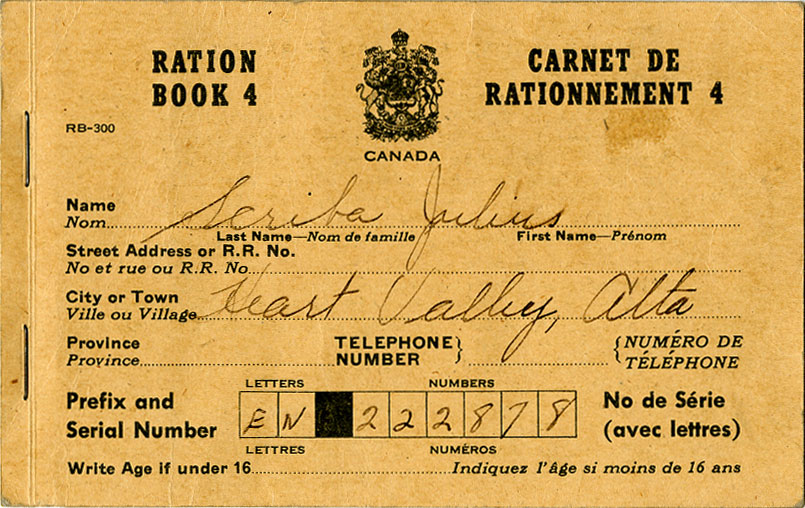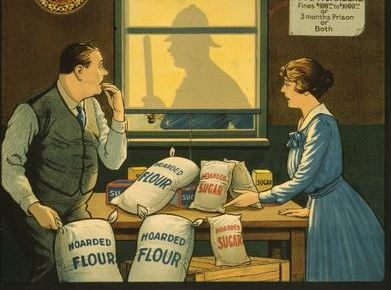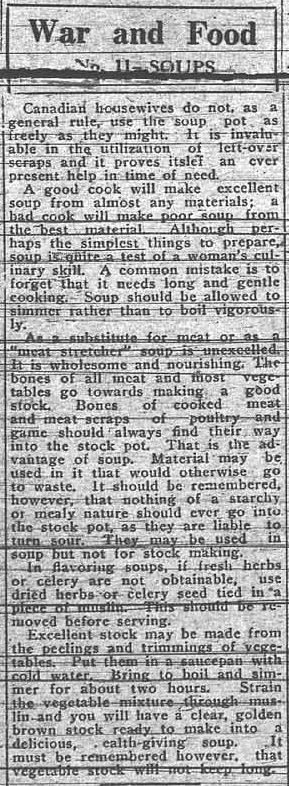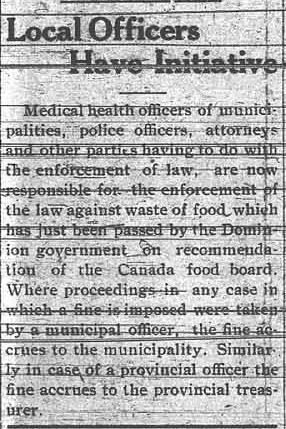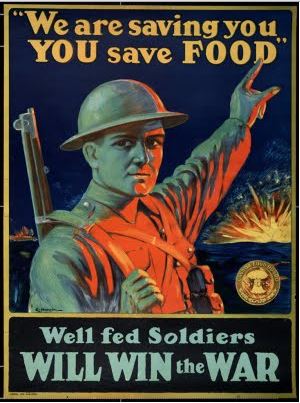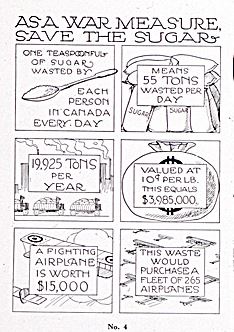The headline in the May 7, 1918 newspaper stated “local Officers Have Initiative” and goes on to say who is responsible for enforcing the law against wasting food, and more importantly, who receives the fine money. I was curious about this law coming so late in the war and set out to find some information. I didn’t find a lot of material. I did find, typically, that the Board produced a lot of Reports, and also seemed keen on Posters and Recipe Books. I did find the following: “In the last two years of World War I, Canada created a Food Control Office, which later became known as the Canada Food Board. This entity regulated Canadian food consumption to the greater extents than had before thought possible. In just two years it brought in over 38 food regulations. It became illegal to hoard flour or sugar, to make candies, and to put icing on cakes and pastries. Margarine became legal, the use of grains in alcohol production became illegal, and serving beef or pork in restaurants on Tuesdays or Fridays was outlawed. Anyone breaking these rules risked fines, business closures, and up to 3 months imprisonment” (Donica Belisle, Ph. D and Assistant Professor in Women’s & Gender Studies at Athabasca University). I suspect the article War and Food No. 11 Soups, was a product of this busy government department.
